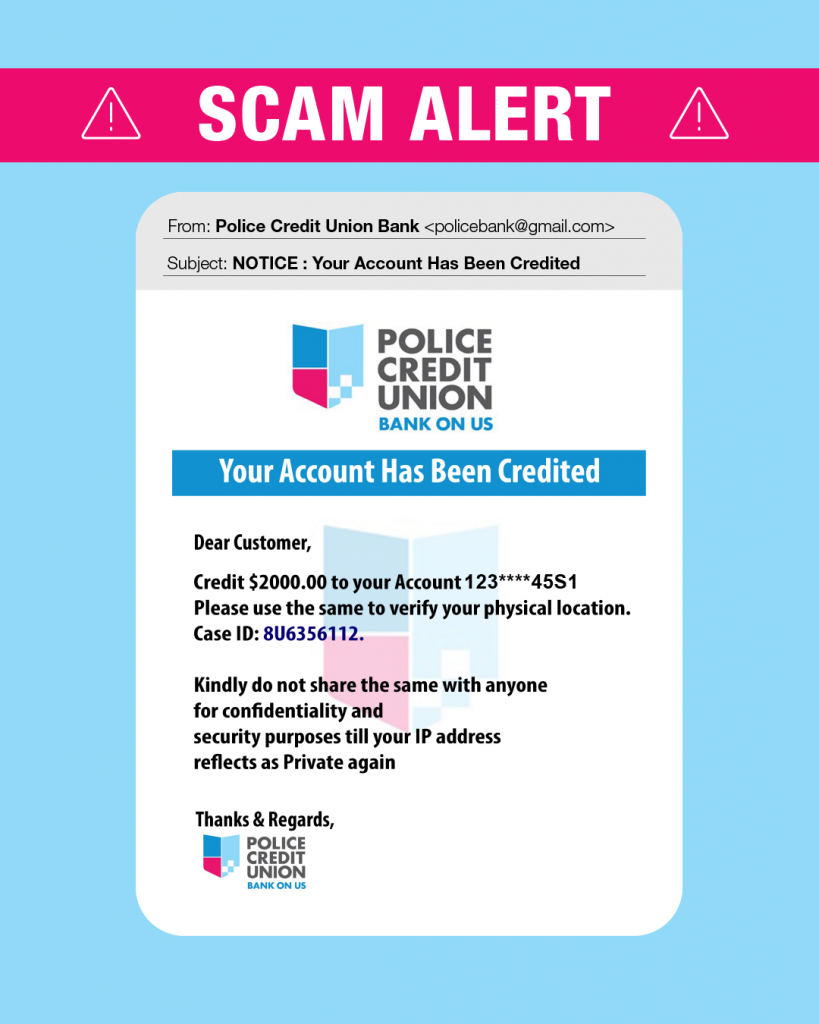We are aware of the following scam email that is attempting to impersonate Police Credit Union. Please be aware that scammers often impersonate legitimate organisations, using their names and logos, to send false information, steal your personal details and ultimately your money.
The below email is NOT from Police Credit Union, it is an active scam email targeting Police Credit Union Members.

It’s important to stay vigilant of ALL communications even from (or appear to be from) brands you know and trust. When you receive an email or SMS, please STOP and carefully assess the communication in case it could be a scam. Even if the email contains a real business name and logo, it could still be a fake.
Recent examples of scams have involved fake but convincing communications about PayPal or eBay transactions that were due to be credited or debited from an account.
Scam messages can be convincing, but these red flags can help you spot a suspicious message. Be wary if:
- The sender’s name is incorrect or contains spelling errors.
- The sender uses a free email address such as Gmail, Hotmail, Outlook, or Yahoo.
- The greeting is generic such as ‘Dear Customer’ or there is no greeting at all.
- The message contains spelling errors and poor grammar.
- The message promotes urgency, threats or secrecy.
- The message is requesting your personal information, account and card details or log in information.
- The message contains a link to log in to “online banking”.
- The signoff is generic and not from a specific staff member.
- The sender is asking you to action a task/request.
REMEMBER: Police Credit Union will NEVER ask for your personal details, log in information, account details or card details over email or SMS. We will NEVER send you a link to Online Banking. Only access Online Banking directly though our website policecu.com.au and never through a link.
If you ever receive an email or SMS from us and you’re unsure if it is real, please give us a call on 1300 131 844 and a member of our team can verify if we tried to contact you.
For more information on scams, check out our Scams and Warnings page.
